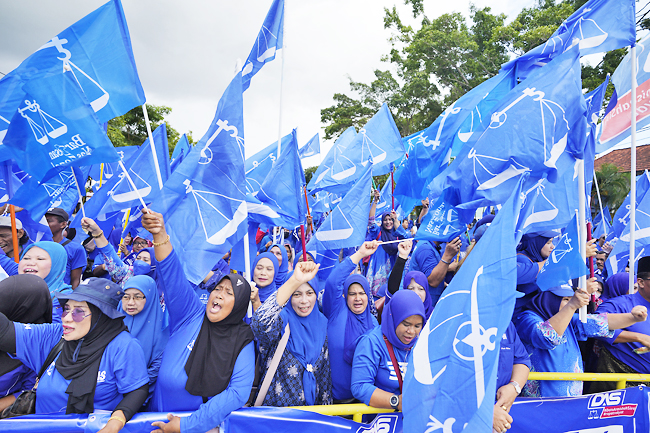BERNAMA – For the 15th general election (GE15), which has produced many firsts, there is one new record that is a bit of a mixed bag – the number of women candidates vying for political power.
At 187 – 127 for Parliamentary seats and 60 for state seats – it is the highest number of women Malaysia has ever seen contesting in a general election.
However, in the federal-level polls, the 127 women only comprise 13.4 per cent of the 945 candidates, a far cry from the 30 per cent target for female political representation that political leaders have been promising for almost a decade.
Although the number of female Parliamentary candidates fielded in GE15 is higher than in GE14, which had 72 female candidates, women rights groups, activists and political analysts are disappointed the total did not even break 20 per cent.
The coalition fielding the highest number of female candidates is Pakatan Harapan with 40, or 18 per cent, followed by Barisan Nasional with 22 or 11 per cent and Perikatan Nasional with 16.

All in, the women are contesting 103 seats out of the 222 Parliamentary seats.
“The general election this year is not the turning point that we have been hoping for women,” said senior lecturer at the Unit for Research on Women and Gender at Universiti Sains Malaysia Dr Zaireeni Azmi.
It was especially disappointing as leaders of major political parties had promised on October 2 to field women candidates in 30 per cent of the seats they were contesting.
The 30-per-cent target refers to a point when there is enough representation of a sub-group, meaning it would now have reached critical mass for the sub-group concerned to become visible and have influence.
Political analyst Dr Sharifah Syahirah Syed Sheikh told Bernama the low number of female political leaders was not a good look for Malaysia.
“We have one of the lowest scores in Southeast Asia. We are not supposed to be in that position because we are not an underdeveloped country, we are a developing country and going towards a developed country,” she said.
Malaysia ranked 103 out of 146 countries in the 2022 World Economic Forum Report.
According to the Department of Statistics Malaysia 2020 figures, Malaysian women’s political empowerment rate is abysmal at 10 per cent.
And yet, women have surpassed men in educational attainment at 105 per cent, almost reached gender parity in health and survival at 93 per cent, and a lower rate of economic participation and opportunity at 73 per cent.
Experts said it is important for women to be part of the political leadership, not only because they make up about 50 per cent of voters and the population but having women in decision-making positions in enough numbers also benefits the economy and society.
Research by global consulting firm McKinsey has found that more women in government can also lower corruption levels.
“When those making policies are more diverse – it’s not just men, it also comprises women – of course, they bring into it a different perspective.
“Even in businesses, they acknowledge that for companies that are more inclusive, they find that they perform better,” said senior lecturer in the Gender Studies Programme at Universiti Malaya Dr Lai Suat Yan.
But despite the benefits, breaking the glass ceiling has been proceeding at a glacial pace, stemming from a patriarchal culture to fear.





